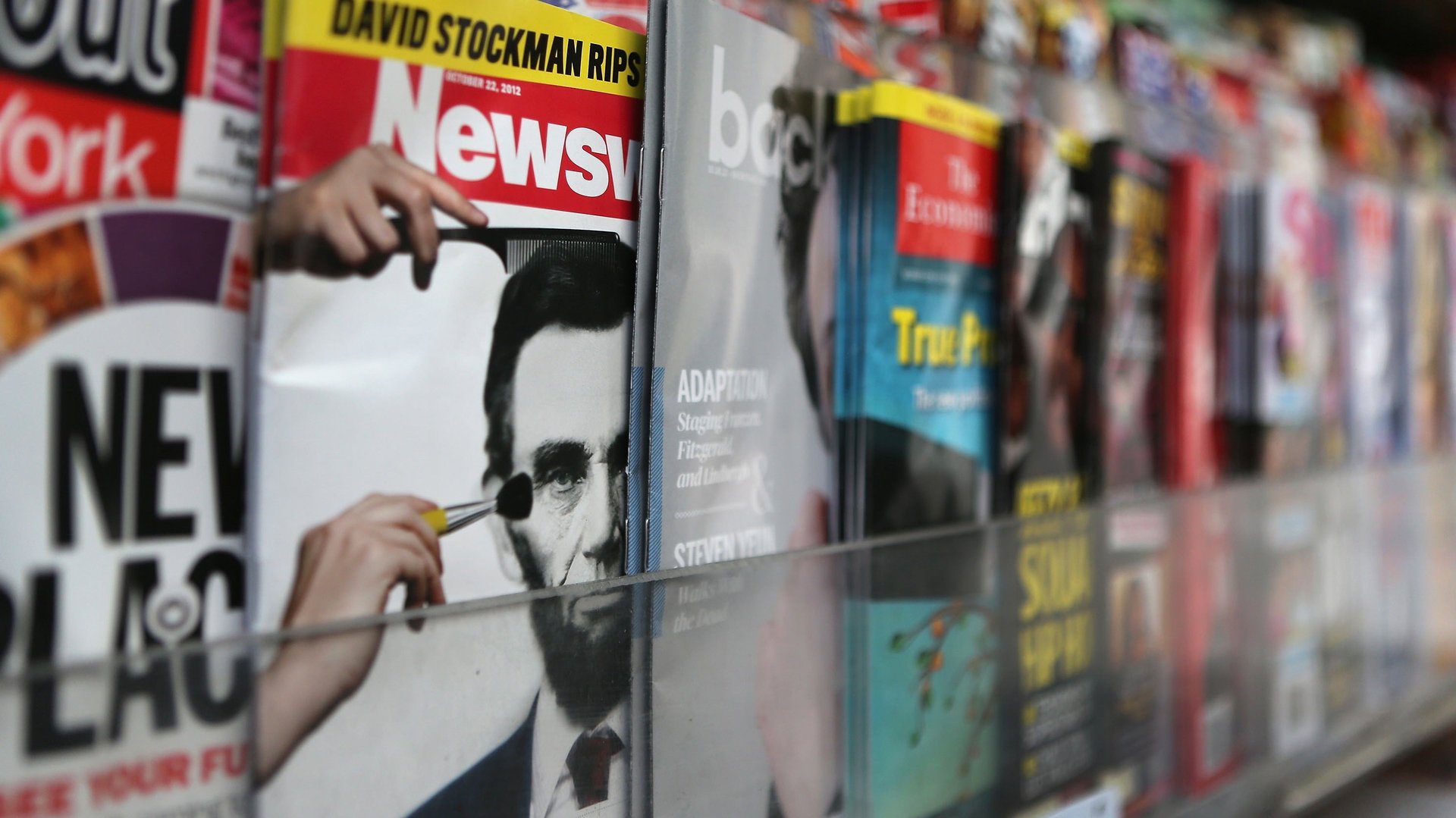Why Newsweek and the Daily Beast failed, while Bloomberg and Businessweek didn’t
With the announcement that Newsweek will cease its print edition by the end of the year, you have to wonder if the “paperless publication” is almost upon us. Until you realize that we have also been promised the “paperless office” for over 30 years… And it still hasn’t happened.


With the announcement that Newsweek will cease its print edition by the end of the year, you have to wonder if the “paperless publication” is almost upon us. Until you realize that we have also been promised the “paperless office” for over 30 years… And it still hasn’t happened.
Newsweek merged in 2010 with the Daily Beast, with the thinking each would benefit from the other’s heft in journalism and digital savvy, respectively. It came on the heels of another media merger—Bloomberg with Businessweek. And yet their strategies and ultimate fates, as today’s announcement proves, have been completely different.
Why has Newsweek become such a losing proposition so soon after its merger with the Daily Beast? Simply because it’s been a losing proposition for years.
Lackluster content combined with declining circulation and advertising revenues, while being No. 2 in the category to Time, should have made it try harder. It didn’t, which is a surprising reflection on owner Barry Diller and editor Tina Brown. My guess? The title will disappear completely within two years.
Perhaps that’s why Bloomberg is investing so much money in marketing both the print and digital editions of Bloomberg Businessweek and making a concerted effort to attract readership and advertising from what it sees as its main rival, the Economist, which claims its print circulation is actually increasing each year. Bloomberg will obviously try to match this with the hard-copy edition of Businessweek, which is ironic when you consider that Mike Bloomberg made his millions in the digital/terminal world. It seems to be working. Last week, AdAge named editor Josh Tyrangiel Editor of the Year “for helping to bring the brand back from the brink with talked-about content that makes the most of Bloomberg’s investment in good old-fashioned editorial excellence.”
The battle for supremacy in quality news/business periodicals will now be fought out between Businessweek and the Economist, as Newsweek stands on the digital sidelines. Interestingly, the Economist is half owned by the Financial Times, which in turn is owned Pearson PLC. Earlier this year, Bloomberg was rumored to be attempting to buy the FT, but was thwarted by Pearson CEO Marjorie Scardino, who is a big fan of the FT and resisted all attempts to sell the business. With the news that Scardino is stepping down at the end of the year, perhaps Bloomberg will make another bid for the FT, followed by the 50% share in the Economist. Then Bloomberg would have it all. And he’d have it in both paper and digital formats, proving that it is indeed possible.